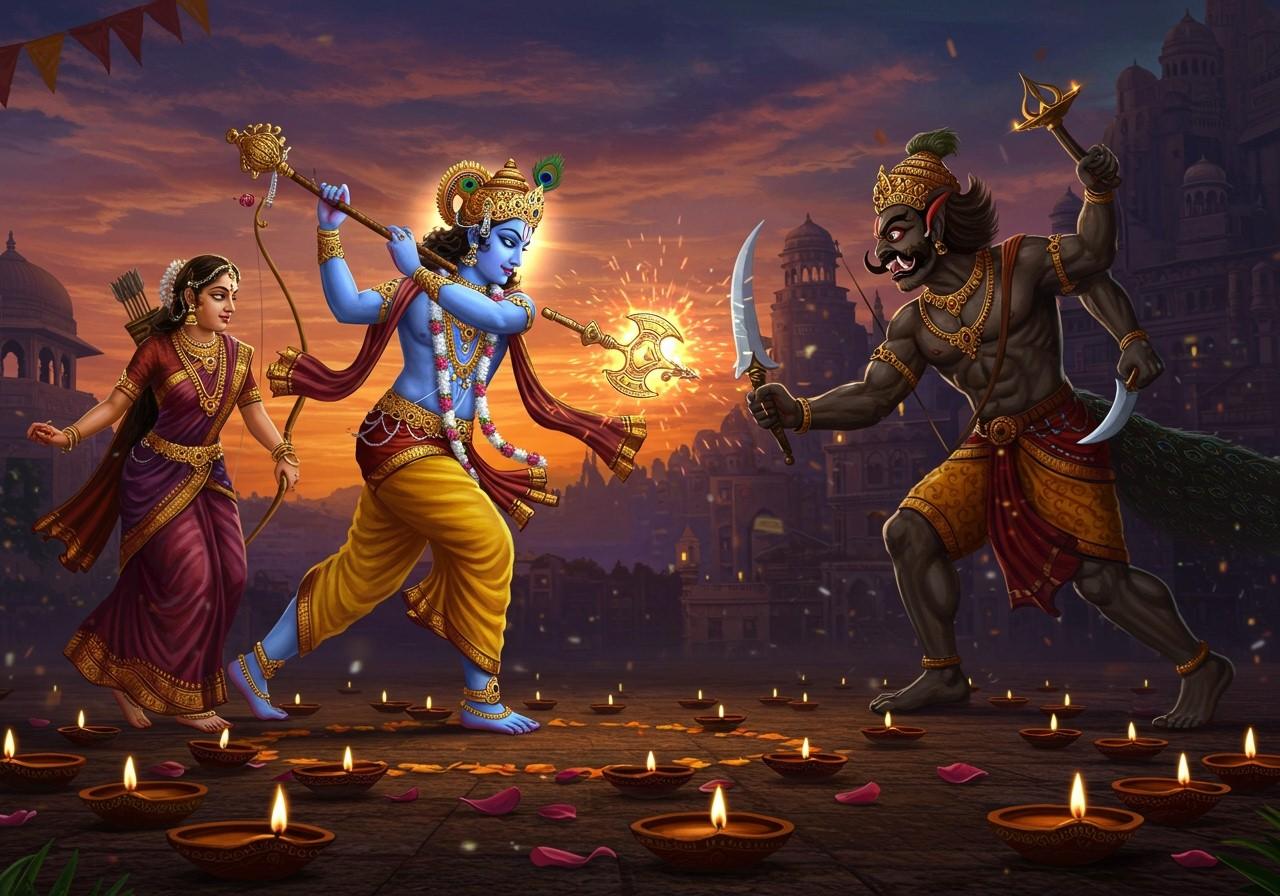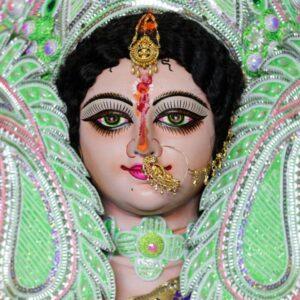
Diwali, the festival of lights, illuminates homes and hearts across India. It signifies the victory of light over darkness, good over evil, and knowledge over ignorance. Central to many Diwali celebrations is the story of Narakasura, a powerful demon king whose defeat is commemorated during this auspicious time. Let’s delve into the narrative of Narakasura and explore the significance of Diwali in Indian culture.
Unveiling the Story of Narakasura
Narakasura, a formidable demon king, is a key figure in Diwali lore. He ruled Pragjyotishapura, inflicting suffering and oppression upon his subjects. Born to Bhudevi (Mother Earth) and Varaha (an incarnation of Lord Vishnu), Narakasura possessed a boon granting him invincibility, except at the hands of his mother. This seemingly insurmountable advantage fueled his arrogance and tyranny.
The Downfall of Narakasura
The tale of Narakasura’s defeat is integral to Diwali celebrations, particularly on Naraka Chaturdashi, the day preceding Diwali. Lord Krishna, accompanied by his wife Satyabhama (an incarnation of Bhudevi), confronted and vanquished Narakasura. This victory is a powerful symbol of good conquering evil, righteousness prevailing over wickedness, and the importance of divine intervention in restoring balance to the world. This triumph is celebrated with great fervor across India, marked by various rituals and traditions.
The Significance of Narakasura’s Defeat in Diwali
Narakasura’s defeat holds profound meaning within Diwali festivities. It represents the purging of negative energies and the ushering in of positivity, light, and righteousness. The symbolic act of lighting lamps during Diwali is seen as dispelling the darkness that Narakasura represented. Firecrackers, while debated for environmental reasons, traditionally signify the celebratory joy of his defeat. Poojas and prayers offered during Diwali further reinforce the values of truth, virtue, and the ultimate victory of good.
Regional Variations in Celebrating Naraka Chaturdashi
Diwali, a vibrant tapestry of traditions, is celebrated diversely across India. In South India, Naraka Chaturdashi holds particular significance. Before sunrise, people take ritualistic oil baths, symbolizing purification and the cleansing of negative energies associated with Narakasura. New clothes are worn to signify a fresh beginning. Celebrations often involve the symbolic crushing of a bitter gourd smeared with oil and vermillion, representing the destruction of evil.
This contrasts with North Indian traditions where the focus shifts towards Lakshmi Puja, honoring the goddess of wealth and prosperity on the main Diwali day.
These regional variations highlight the rich cultural diversity of India, demonstrating how a single festival can be interpreted and celebrated in myriad ways while retaining its core message of the victory of good over evil.
Diwali at Poojn.in: Embrace Tradition with Modern Convenience
Celebrate the victory of good over evil with Poojn.in’s exquisite Crystal Brass Diya. This handcrafted diya, perfect for the traditional early morning Abhyang Snan ritual, illuminates your puja space with a pure, steady flame, symbolizing the triumph of light over darkness. Crafted from high-quality brass, this diya ensures ritual purity while adding a touch of elegance to your Diwali celebrations.
Poojn.in offers a wide selection of Diwali puja essentials, making it your one-stop shop for all your festive needs. Explore our curated collection of incense sticks, deities, and more, ensuring a spiritually enriching and convenient Diwali experience.
Frequently Asked Questions about Narakasura and Diwali
What is the significance of Narakasura in the Diwali narrative? Narakasura, a tyrannical demon king, symbolizes darkness and evil. His defeat by Lord Krishna and Satyabhama represents the triumph of good over evil, a central theme of Diwali.
How does the story of Narakasura connect to Diwali celebrations? The victory over Narakasura is celebrated on Naraka Chaturdashi, a key part of the Diwali festival. The act of lighting lamps symbolizes the dispelling of darkness and ignorance that Narakasura embodied.
What are some common rituals associated with Naraka Chaturdashi? In South India, people traditionally wake up before sunrise, take oil baths symbolizing purification, and wear new clothes. The symbolic crushing of a bitter gourd signifies the destruction of evil.
How does celebrating Diwali uphold the values represented by Narakasura’s defeat? Diwali celebrations, with their emphasis on light, joy, and communal harmony, reinforce the values of righteousness, the victory of good over evil, and the importance of dispelling ignorance.

